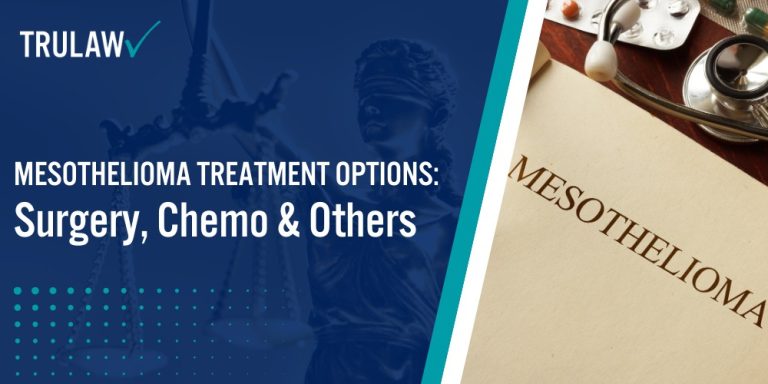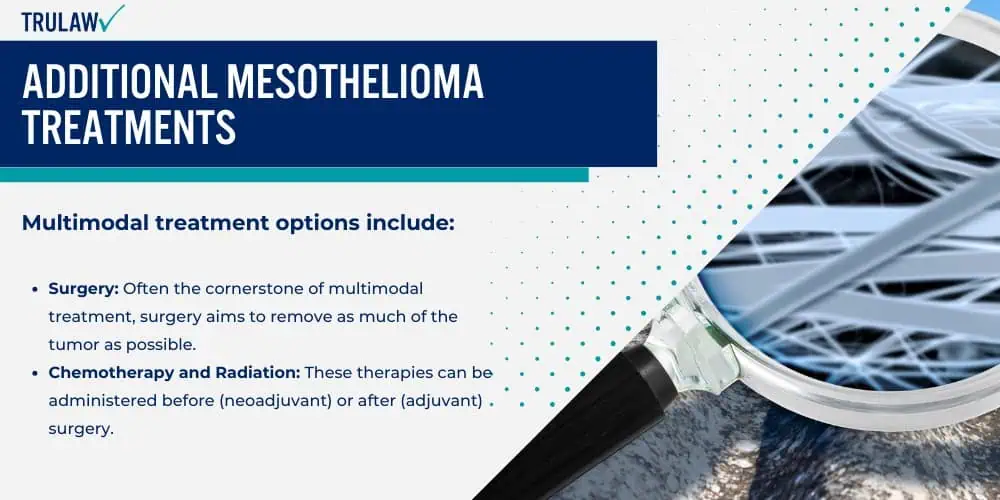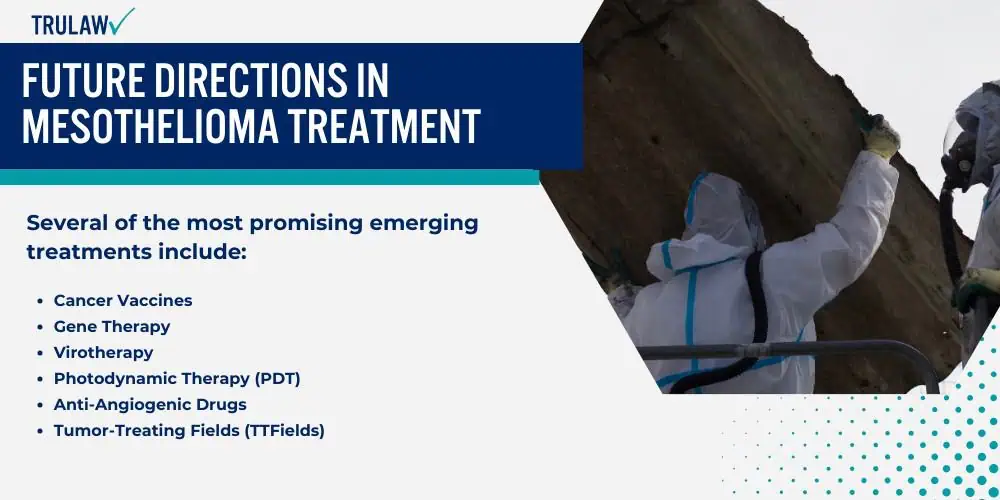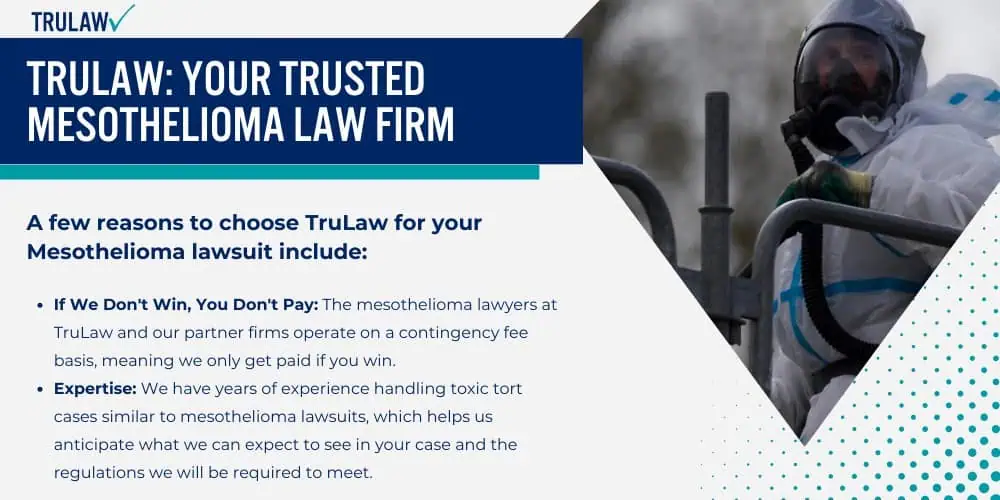Several treatment options are available for mesothelioma, which are often customized to the cancer stage and the patient’s overall health.

The primary goal of treatment is to either remove or shrink the cancer, alleviate symptoms, or extend survival.
The most common treatments include surgery, chemotherapy, radiation therapy, and immunotherapy.
Each method offers unique benefits, with treatment plans often combining these approaches to improve patient outcomes.
Surgical Treatment
Surgery plays a significant role in mesothelioma treatment, especially for patients in the earlier stages of the disease.
The primary objective is to remove as much of the cancer as possible to relieve symptoms and potentially extend survival rates.
These surgical treatments include:
- Extra-pleural Pneumonectomy (EPP): A radical procedure that involves the removal of an entire lung, part of the diaphragm, and surrounding tissues.
- Pleurectomy/Decortication (P/D): A less invasive surgery that preserves the lung by removing the lung’s lining and any visible tumors. This surgery is aimed at symptom relief and improving quality of life.
- Cytoreductive Surgery with HIPEC: This procedure is primarily used for peritoneal mesothelioma. It involves removing visible tumors from the abdominal cavity, followed by heated chemotherapy (HIPEC) to target the remaining cancer cells.
After surgery, additional treatments such as chemotherapy or radiation are often necessary to help ensure the elimination of remaining cancer cells.
Chemotherapy Treatment
Chemotherapy is a cornerstone in the treatment of mesothelioma, aimed at killing cancer cells and shrinking tumors.
It may be administered before surgery to shrink tumors or after surgery to eliminate residual cancer, and it can also serve as the primary treatment in cases where surgery is not possible.
Common chemotherapy options include:
- Standard Regimen: The most commonly prescribed chemotherapy for mesothelioma is the combination of pemetrexed with cisplatin or carboplatin.
- Additional Drugs: Depending on individual circumstances, drugs like gemcitabine and vinorelbine may be used if the standard regimen is ineffective.
Chemotherapy, though effective in many cases, often comes with side effects like fatigue, nausea, and a weakened immune system, all of which require careful management by healthcare providers.
Radiation Therapy Options
Radiation therapy uses high-energy rays to target and destroy cancer cells, providing symptom relief or acting as a complement to other treatments like surgery or chemotherapy.
Radiation therapy options include:
- External Beam Radiation Therapy (EBRT): This is a common form of radiation therapy that uses external beams of radiation aimed at the tumor.
- Brachytherapy: This method involves placing radioactive material directly inside or near the tumor. Although less common, it may be available in specific clinical trials for mesothelioma.
Radiation therapy is particularly beneficial for alleviating pain and managing other symptoms caused by mesothelioma, though its role in disease control is generally supportive.
Immunotherapy Approaches
Immunotherapy is an emerging area of treatment for mesothelioma, leveraging the body’s immune system to recognize and fight cancer cells.
It has shown promising results, especially in patients with advanced disease stages.
Available immunotherapy treatments include:
- Checkpoint Inhibitors: Drugs like nivolumab (Opdivo) and pembrolizumab (Keytruda) inhibit proteins that prevent immune cells from attacking cancer cells. These drugs have shown positive results for patients with advanced mesothelioma who may not respond to other treatments.
- Monoclonal Antibodies: These laboratory-created molecules target specific antigens on cancer cells, triggering a more robust immune response against the tumors.
Immunotherapy is often considered after traditional treatments have been exhausted, offering hope for patients who have not responded to surgery, chemotherapy, or radiation.
However, it remains under study, with varying results based on individual cases.
Each treatment option presents different risks, benefits, and outcomes, and deciding which to pursue depends on the patient’s unique situation.
Patients should consult with a medical team experienced in mesothelioma treatment to explore all available options.






